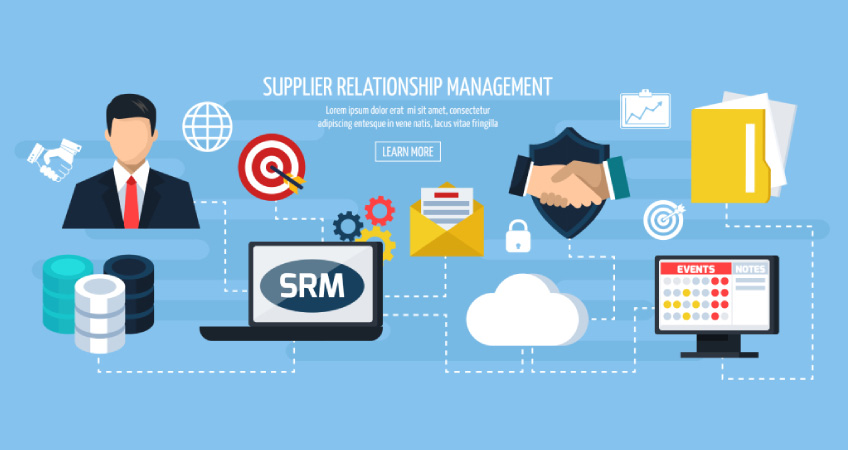Good Practices in Supplier Relationship Management

Supplier Relationship Management is more important than ever with the ongoing pandemic, increasing market volatility and uncertain political environments. Supply chain leaders are increasingly aware of the need to have a robust supplier relationship management strategy and they know if enterprises do not manage vendor relations and information strategically, it can lead to a variety of undesirable outcomes such as high procurement costs, lack of business insights, wasted resources or even compliance issues.
Benefits of Supplier Relationship Management
- Enhanced Supplier Visibility and Superior Decision Making
Supplier data is often incomplete, outdated, and fragmented across multiple disparate systems. Valuable data is hidden in spreadsheets and databases, each with its own structure and model. This lack of visibility also makes it extremely difficult, if not impossible, to act quickly in response to shifting market needs and dynamics. Enterprises need automated workflows to build supply chain resilience and help identify and onboard alternate suppliers quickly. Centralized access improves visibility and increases transparency helping organizations get a superior understanding of all relationships and better decision making.
- Faster Supplier Onboarding Process
Ineffective and inefficient manual processes to manage supplier data are usually accompanied by a lot of redundant workloads, resulting in significantly slower time to market. Automating supplier workflows reduces the time significantly to onboard new suppliers and improves time to market for new products substantially with streamlined and automated supplier onboarding, workflows, and self-service.
-
- Risk Reduction with Increased Transparency and Data Governance
Supply chain uncertainty has increased in the past years due to the pandemic. The ability to assess the risk for a specific vendor while also monitoring their compliance or performance is an ongoing pain point for most supply chain executives. Supplier-facing tools, BI, and Analytics applications can empower finance, legal, and supplier relationship management teams in easily monitoring and analyzing supplier risk and compliance.
Enterprises should look out to actively build long-lasting, trusted relationships with dedicated suppliers to succeed in the market, so let’s find out which strategies can help achieve this.
-
- Treating Vendors as Partners
Supplier partnership should be based not only on financial transactions but also on mutual trust and loyalty. Making suppliers feel like they are a part of the customer’s business, informing them about the processes, such as releases of new products and promotions, and listening to their concerns can go a long way in building mutually beneficial relationships.
-
- Detailed agreements make supplier relationships easier
Supplier Relationship agreements with a strong contract management process are a must. Explicitly mentioning what both parties expect from the partnership such as service descriptions, price, delivery, and payment terms, etc can help uncomplicate matters and build stronger relationships.
-
- Planning for Disruptions
Disruptions due to raw materials shortage, natural disasters, or pandemic-related will happen. Working with suppliers to help manage and mitigate those risks, will help develop a more robust and more transparent relationship with them.
-
- Embracing Technology
Investing in technology such as SRM will help enterprises go a long way in developing exceptional relationships with suppliers. Enterprises should look out for tools that help them manage supplier invoicing, managing risks and other supply chain activities efficiently.

